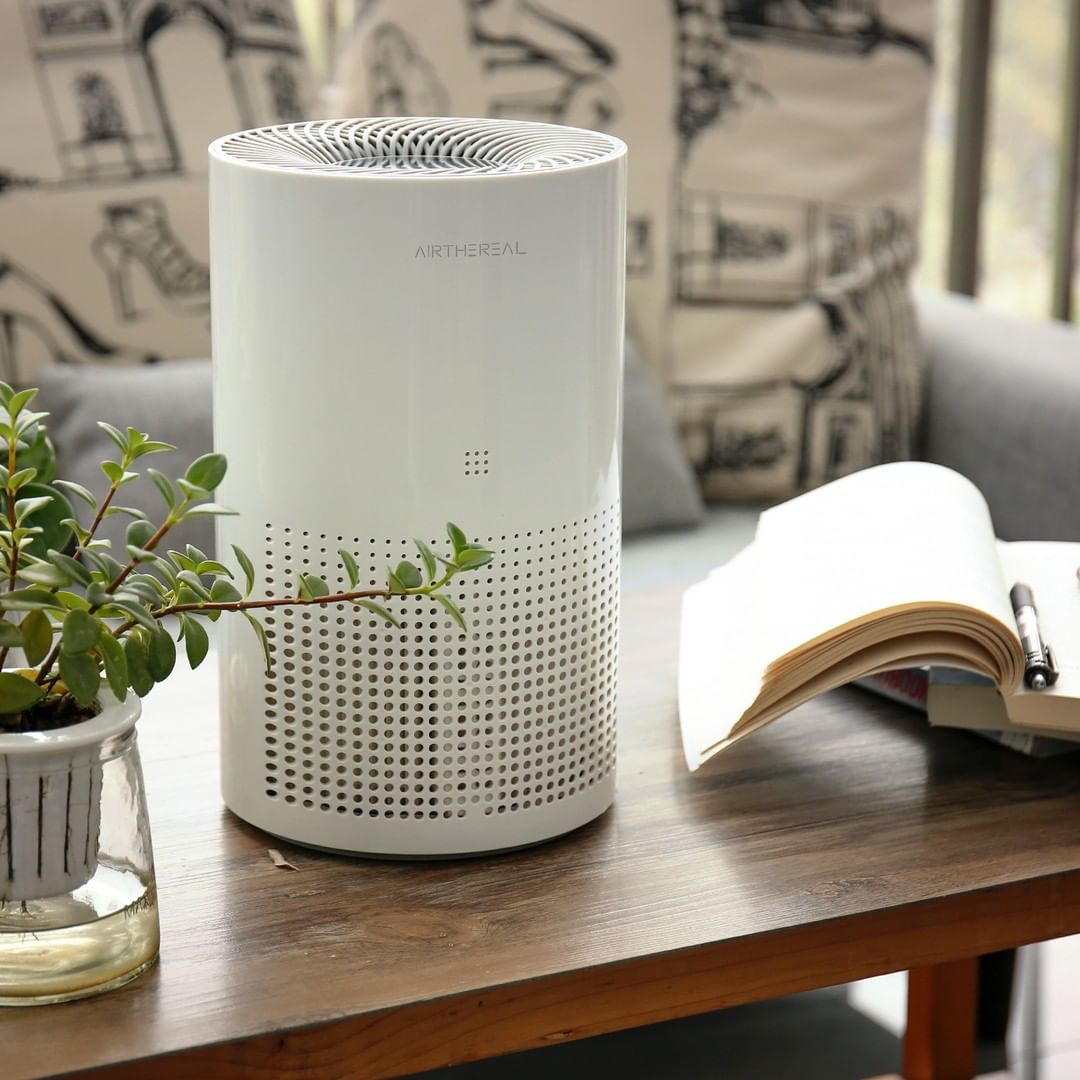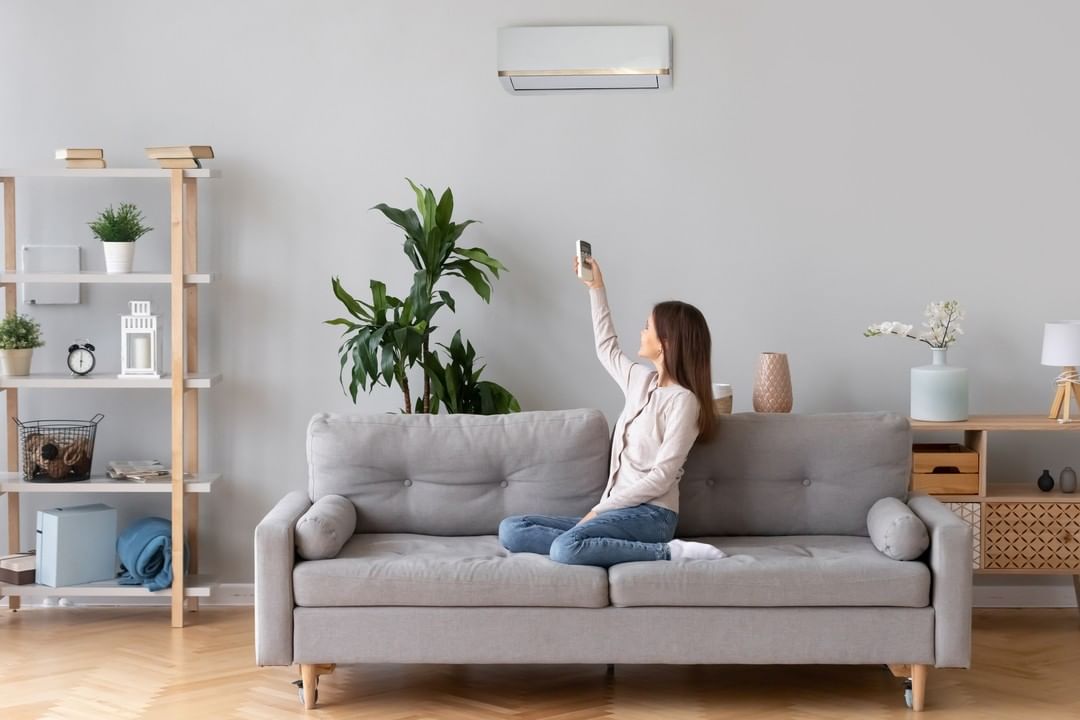The Importance of Indoor Air Quality
On any given day, an average adult will typically breathe in around 15,000 liters of air. This inhaled air is then transported around our body so that it can deliver essential stores of oxygen to our muscles and vital organs.
Therefore, it is unsurprising to learn that the quality of the air that we breathe plays a significant role in our overall health.

Air pollution is known to have negative short and long-term health consequences. While most people associate air pollution with the air they breathe when they’re outdoors, indoor air pollution is an equally important issue, especially as most people don’t even take the time to consider it.
This is compounded when we acknowledge the fact that most people spend a lot more time indoors nowadays than they ever have before. Whether this means they are spending more time at work or at home, people are exposed to low indoor air quality are often bombarded them with irritants, gases, and other pollutants.
What Health Issues Can Be Caused By Poor Air Quality
Low-quality air can result in eye, nose, and throat irritation as well as shortness of breath. Poor air quality can also aggravate a person’s asthma or other underlying respiratory conditions.
Long-term exposure to polluted air can cause serious health problems.

Long-term health issues that can be caused by air pollution can include heart disease, lung cancer, and respiratory diseases like emphysema.
It can also damage the human nervous system, brain, liver, kidneys, and other organs. Some studies have also linked pollution to congenital disabilities.
How to Improve Air Quality
There are plenty of simple things you can do to improve your indoor air quality. First of all, keep it clean. A clean house has been proven to be a healthier house, and vacuuming, dusting, and mopping can help bring down levels of dust and animal dander.

One of the more surprising ways to improve indoor air quality is to keep plants outside. Plants are excellent at trapping dust and other irritants and pollutants, so if you want to improve your indoor air quality, keep the houseplants outside.
Depending on where you live, opening your windows can be a simple way to improve your air quality. This is common when the source of the pollutants or irritants are inside the home and not outside.
One of the best ways to improve your indoor air quality is to change the filters in your air conditioning unit. The importance of AC repair and service is paramount when it comes to improving the air quality in your home.
As we’ve seen, investing in an air purifier can be one of the best ways to test, monitor, and improve your indoor air composition. You can sync them up to your phone and keep an eye on your indoor air quality wherever you are.
One of the best times to improve your indoor air quality is when you’re planning a kitchen remodeling.
As the filtration systems and air conditioning will be a part of the refurbishment, now is a great chance to invest in an improved system, so think about proper air filtration when planning a kitchen remodeling.
How to Monitor Indoor Air
There are plenty of reasons why you might want to test and monitor your home’s indoor air quality. You might suspect high levels of dust, allergens, humidity, or chemical pollutants, or you may just want peace of mind.
Today it’s simpler than ever to test and monitor your indoor air quality. All you have to do is get hold of an indoor air quality monitor. Some indoor air quality monitors also track outdoor air and compare inside to outside.

The measurements are displayed on a screen that you can pair to your phone so that you can check your indoor air quality on your way home.
Most indoor air quality monitors will alert you if any measurements reach unsafe levels. They’ll do this with an indicator light on the monitor itself as well as sending you a notification on your phone.
There are some smart monitors you can pair to other devices, like an air purifier, fan, or dehumidifier, to help bring down the pollutant levels.
The Main Causes of Air Pollution
We’ve all seen the pictures of huge cities covered in thick yellow smog, and it’s not hard to link car exhaust to increased pollution levels. But these aren’t the only forms or causes of poor air quality. Some are visible, and some are invisible.
The first and most common source of air pollution is vehicle exhaust fumes. Car exhausts release high levels of carbon monoxide, which is a massive contributor to air pollution.

We’re seeing more electric and hybrid vehicles being brought out to combat the huge drawback of gasoline-powered cars.
Fossil-fuels are also burned in power plants. This is a widespread cause of poor air quality as burning fossil fuels also releases chemicals like sulfur dioxide, which can react with water molecules and cause acid rain. Exhaust from industrial plants and factories also contribute to poor air quality.
Construction can also have a significant impact on air quality, especially during activities like demolition where dust, chemicals, and hazardous materials can be kicked up into the atmosphere.
Agricultural activities can also play a large role, where a chemical called ammonia is often used or produced as a byproduct and is terrible for the surrounding air quality.
There are also plenty of factors that affect the quality of the air in our homes. Household products like bleach can be a source of indoor air pollution, as well as paints and other chemicals. Smoking also releases toxic chemicals into the air.
Improved Indoor Air Quality
Now we’ve seen why it’s important to monitor the composition of the air your breathing. We’ve covered some surprising contributors to air pollution and taken a look at the wide range of adverse health issues that can result from breathing poor kind air.

We’ve also covered what you can do to improve the indoor air quality of your home. You have everything you need to start breathing fresher, cleaner, healthier air.
According to the World Health Organisation (WHO), breathing cleaner air can go a long way towards reducing the risk of stroke, heart disease, lung cancer and a wide range of other respiratory diseases.






